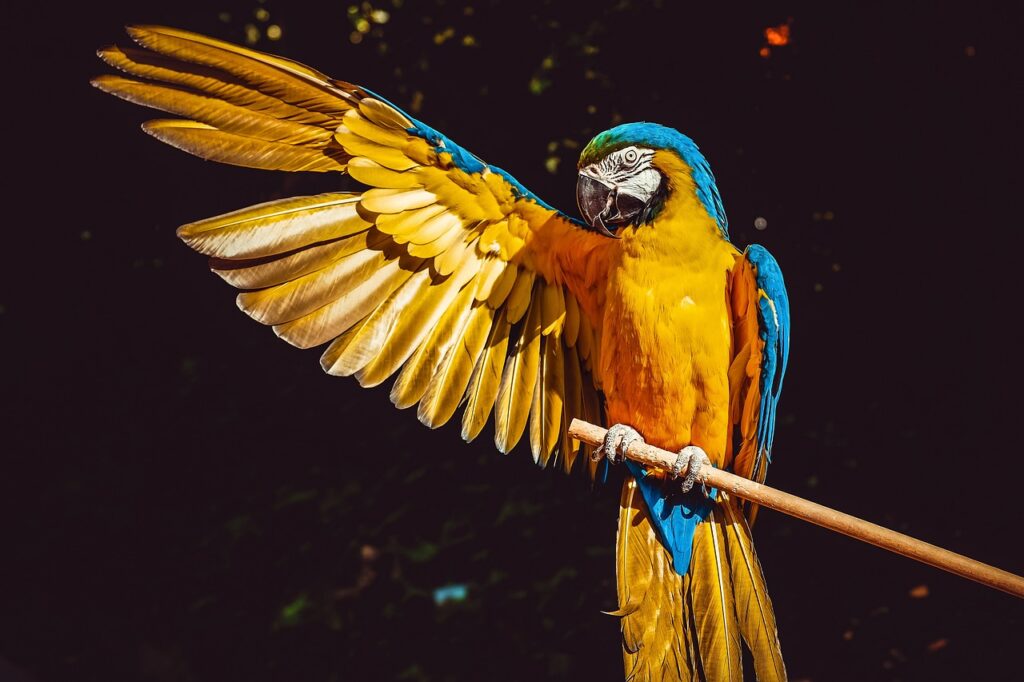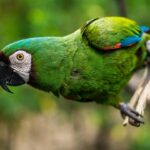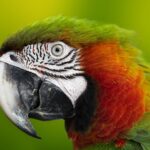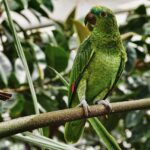Can Parrots Eat Aloe Vera? Unveiling the Truth Behind this Controversial Topic
As a responsible pet owner, it’s essential to be well-informed about what food items are safe for your feathered friend. One such topic of debate among avian enthusiasts is whether parrots can consume aloe vera. Contrary to popular belief, aloe vera is not recommended for parrots due to its potential health risks.
The Hidden Dangers: Why Aloe Vera is a No-Go for Parrots
Aloe vera may have various benefits for humans, such as skincare and aiding digestion. However, when it comes to parrots, ingesting aloe vera can pose serious health concerns. One of the primary reasons is the presence of aloin, a compound found in the outer yellow part of aloe vera leaves. Aloin is known to have a laxative effect, which can be harmful to parrots as it may cause diarrhea, dehydration, and electrolyte imbalances.
Potential Symptoms and Reactions: What to Expect
If a parrot accidentally consumes aloe vera, it may exhibit several symptoms and reactions. These can include digestive disturbances, such as diarrhea and vomiting. Additionally, the parrot may experience discomfort, abdominal pain, and overall weakness. It is crucial to be vigilant and observant of any changes in your parrot’s behavior or health after exposure to aloe vera.
The Safer Alternatives: What Parrots Can Enjoy Instead
While aloe vera is off-limits for parrots, there are plenty of safer food options that you can offer to meet their dietary needs. Parrots thrive on a diverse diet consisting of fruits, vegetables, and pellets specifically formulated for their nutritional requirements. Some suitable alternatives to aloe vera include fresh apples, strawberries, carrots, leafy greens like kale or spinach, and commercial bird treats made with natural ingredients.
Tips to Prevent Accidental Consumption of Aloe Vera
Preventing your parrot from accessing aloe vera is vital to ensure their well-being. Here are some effective measures to keep your feathered friend safe:
- Secure the Environment: Keep aloe vera plants out of your parrot’s reach, whether indoors or outdoors.
- Monitor Interactions: Be cautious while your parrot is exploring its surroundings, especially around plants or unfamiliar objects.
- Provide Enrichment: Offer engaging toys, perches, and activities to keep your parrot stimulated and less likely to seek out forbidden items.
- Supervise Outdoor Time: If your parrot enjoys outdoor time, ensure the environment is free from potential hazards like aloe vera plants.
Conclusion
In conclusion, parrots should avoid consuming aloe vera due to the potential health risks associated with its ingestion. While aloe vera may have its benefits for humans, it is important to prioritize our feathered companions’ well-being. Instead, provide them with a balanced and nutritious diet consisting of suitable fruits, vegetables, and specially formulated bird foods. By following these guidelines and implementing preventive measures, you can promote responsible pet care and keep your parrot happy and healthy.






